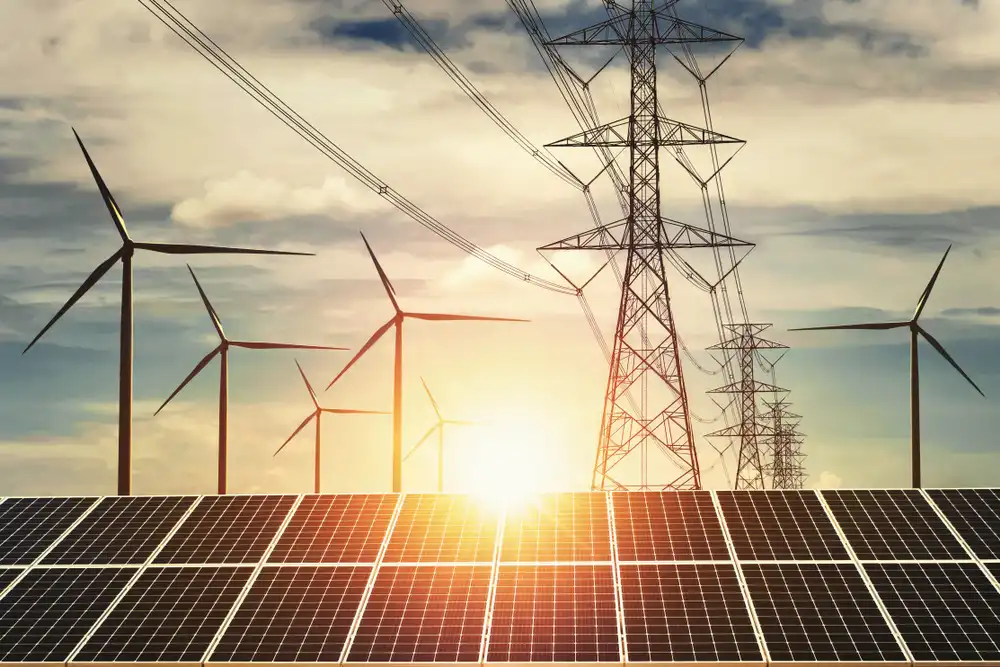Energy diplomacy has evolved significantly in recent years, adapting to new global challenges and opportunities. As the world faces an urgent need for sustainable energy solutions, energy diplomacy will play a crucial role in shaping the global energy landscape. From fostering international cooperation on clean energy to navigating geopolitical tensions related to energy resources, the future of energy diplomacy promises to be dynamic and transformative. In this post, we’ll explore the key trends and challenges shaping the future of energy diplomacy and why it’s more important than ever for global leaders to collaborate.
The Growing Importance of Energy Diplomacy
Energy diplomacy refers to the negotiations and agreements between countries regarding energy resources, security, and sustainability. Historically, energy diplomacy focused primarily on securing fossil fuel supplies. However, with the global transition to renewable energy and increasing concerns about climate change, energy diplomacy has expanded to include discussions on sustainable energy systems, renewable energy technologies, and energy access for all.
As countries work toward their climate goals and pursue energy transitions, international cooperation has never been more important. Diplomacy around energy policies will help balance economic development, security concerns, and environmental sustainability. This shift requires energy diplomats to become more versatile and engaged in diverse global conversations, ranging from technological innovations to geopolitical power shifts in energy production and consumption.
Key Trends Shaping the Future of Energy Diplomacy
1. The Transition to Renewable Energy
The global transition to renewable energy is perhaps the most significant factor influencing the future of energy diplomacy. As countries move away from fossil fuels and toward clean energy sources like wind, solar, and hydropower, international cooperation will be essential to ensure that resources are shared equitably, and new energy markets are developed. Energy diplomacy will facilitate the smooth integration of renewable technologies, ensuring that countries have access to the financing, expertise, and political support necessary for these transitions.
2. Energy Security and Diversification
As energy systems become increasingly decentralized, energy security remains a top priority for many countries. Nations are looking to diversify their energy sources to reduce dependency on any single resource or supplier. Energy diplomacy will be critical in ensuring that countries have a secure, reliable, and diversified energy mix. Diplomatic efforts will focus on cross-border energy trade agreements, grid integration, and the sharing of technology that enables secure, resilient energy systems.
3. The Role of Technology and Innovation
Technology will be a cornerstone of the energy diplomacy of the future. Innovations in energy storage, smart grids, and digital solutions are transforming the way energy is produced, distributed, and consumed. Energy diplomats will need to navigate the complexities of new technologies while ensuring that these innovations benefit all nations. Collaborative research, sharing best practices, and establishing international standards for new technologies will be key aspects of energy diplomacy moving forward.
4. Geopolitics and Energy Resources
While the world is increasingly focused on renewables, traditional energy resources like oil, gas, and coal will continue to shape global politics for the foreseeable future. Energy diplomats must address geopolitical issues related to fossil fuel supply chains, market dynamics, and resource extraction. In addition, energy diplomacy will play an essential role in managing disputes over cross-border energy projects, pipeline routes, and maritime energy rights, particularly in areas like the South China Sea and the Arctic.
5. Climate Change and Global Cooperation
Climate change is a global issue that demands collective action. Energy diplomacy will be central to fostering cooperation on international climate agreements, such as the Paris Agreement, and ensuring that countries uphold their commitments to reduce emissions. Diplomats will work on aligning energy policies with climate goals, supporting the transition to clean energy, and addressing the financial and technical barriers that may hinder progress, particularly in developing countries.
Challenges Facing the Future of Energy Diplomacy
While the future of energy diplomacy holds great potential for international collaboration, there are significant challenges to address. These include:
-
Competing National Interests: Countries may have differing priorities, such as economic development, energy security, and environmental protection, making it challenging to find common ground on energy policies.
-
Geopolitical Tensions: Competition for energy resources, such as oil and natural gas, continues to fuel geopolitical tensions. Energy diplomacy must find ways to mitigate conflicts and promote peaceful cooperation.
-
Technology Transfer: As advanced energy technologies become increasingly important, ensuring that these innovations are shared equitably between developed and developing nations remains a challenge.
-
Energy Equity: Access to affordable, reliable, and sustainable energy is not equally available across the globe. Energy diplomacy must ensure that all nations, particularly low-income and developing countries, have access to clean energy solutions.
Why Energy Diplomacy Matters
Energy diplomacy is about more than just securing access to energy resources—it’s about fostering international partnerships and creating a more sustainable, secure, and equitable global energy system. As the world faces the dual challenges of climate change and energy transition, energy diplomacy will be the key to ensuring that nations can collaborate to achieve shared goals.
The future of energy diplomacy is not just about negotiating trade deals or securing fossil fuels; it’s about working together to create innovative solutions, promote sustainable development, and build a resilient, low-carbon energy future for all. As global energy leaders, diplomats, and experts continue to shape energy policies, their ability to cooperate across borders will ultimately define how successfully the world transitions to a cleaner, more sustainable energy future.
The Role of Vienna Centre for Energy Diplomacy
At the Vienna Centre for Energy Diplomacy, we are dedicated to driving global energy cooperation through research, dialogue, and action. By bringing together governments, industry experts, and academic leaders, we create platforms for meaningful conversations about energy transition, climate goals, and international collaboration. Through our efforts, we aim to ensure that energy diplomacy continues to play a central role in achieving a sustainable, secure, and inclusive global energy future.

